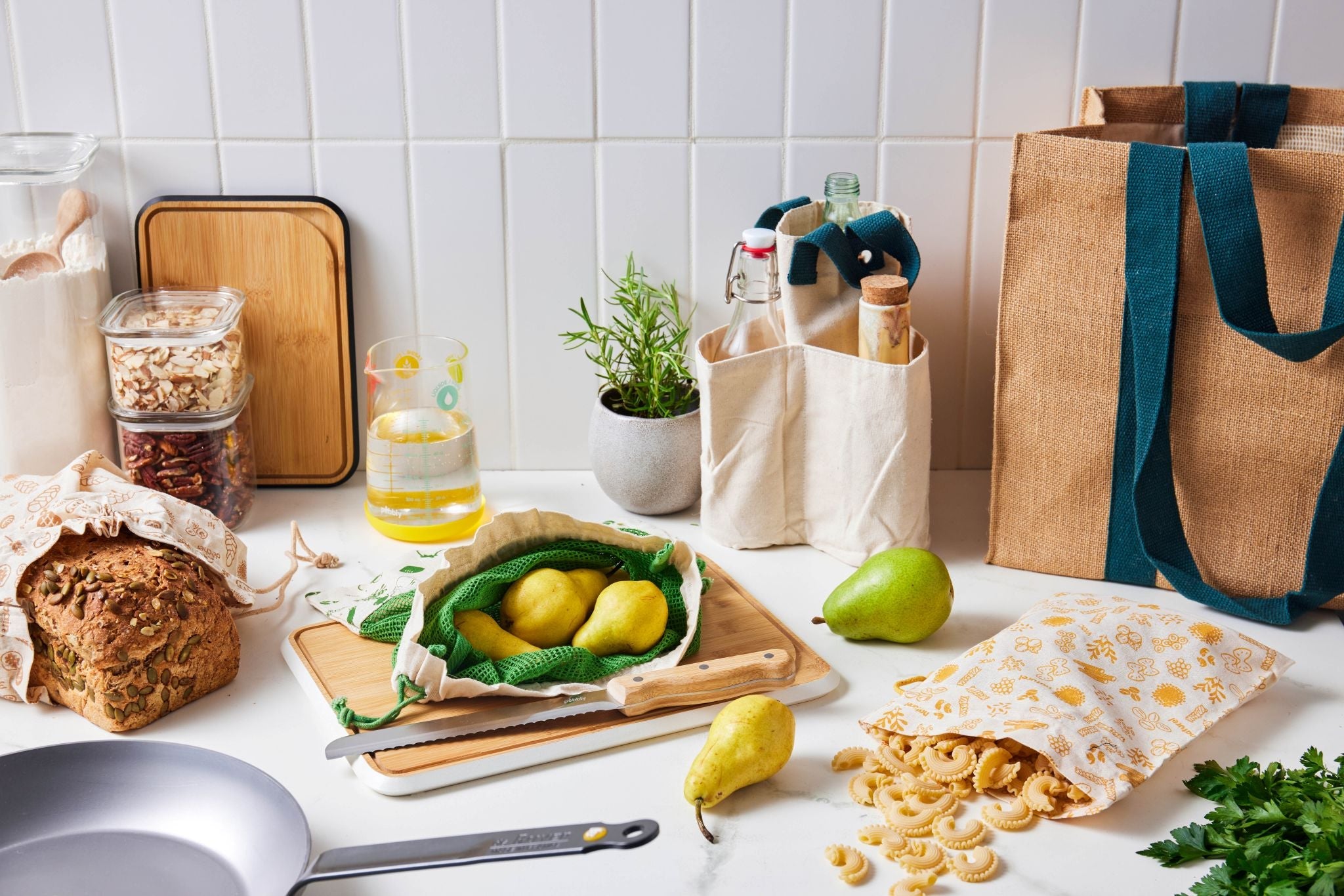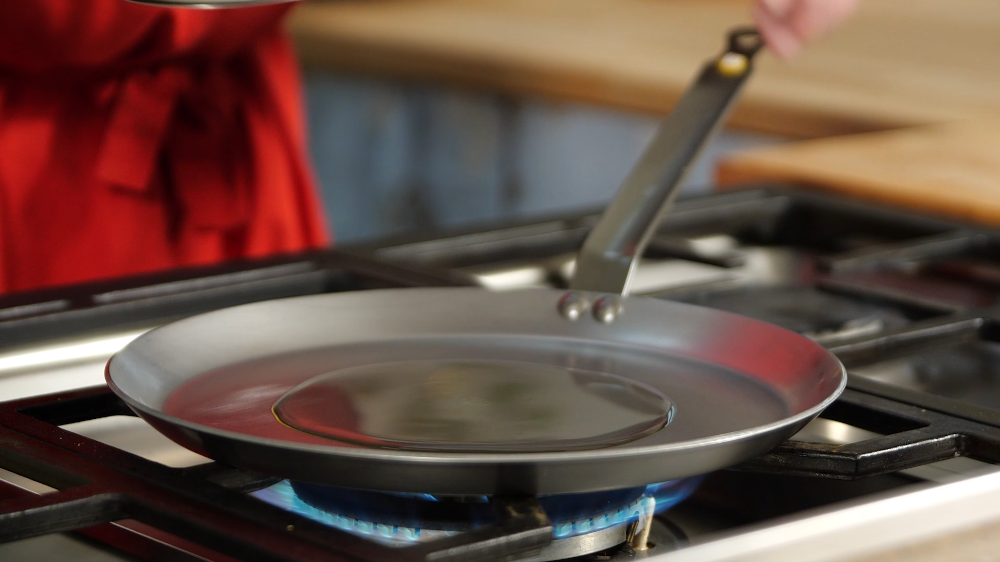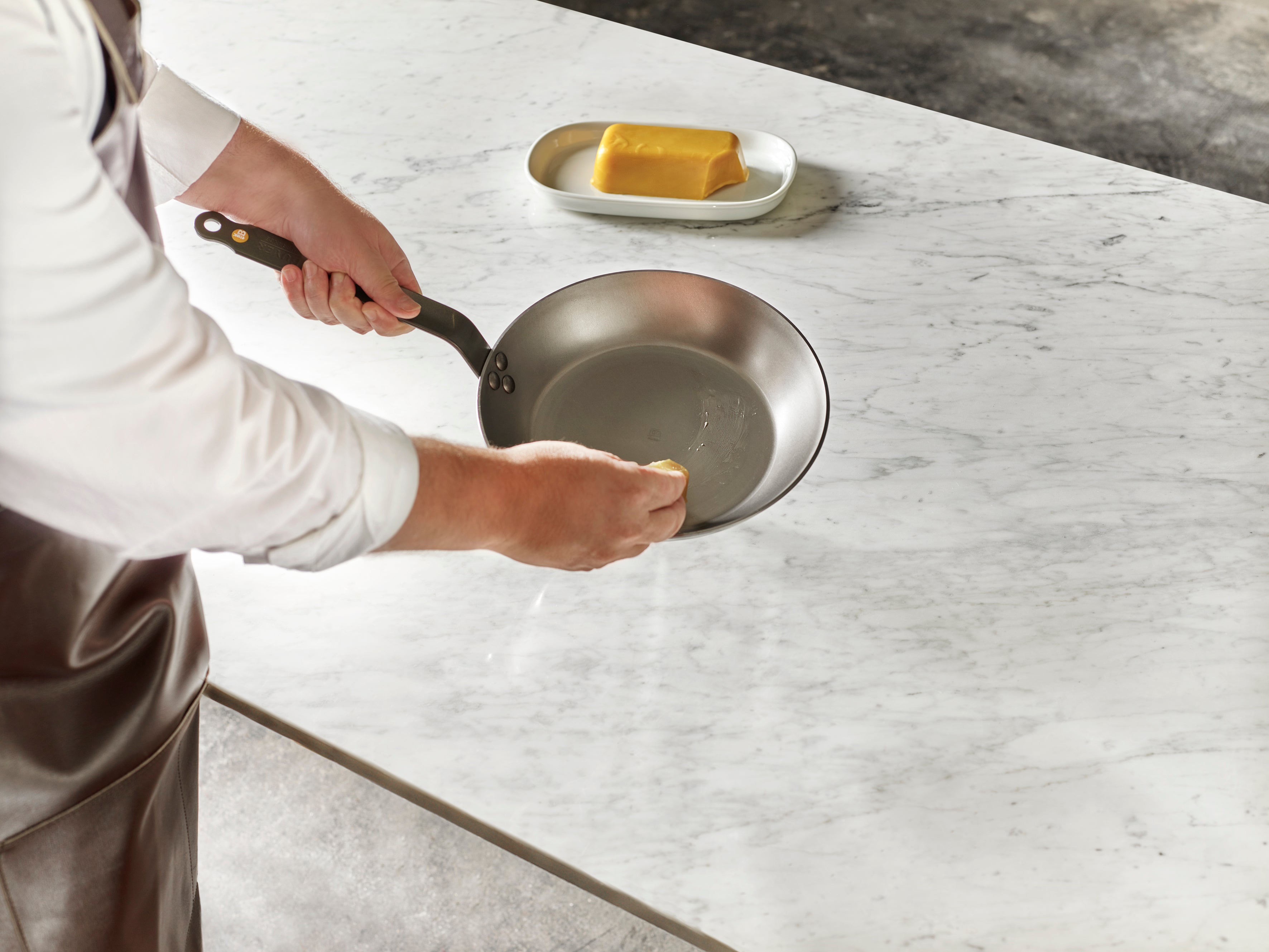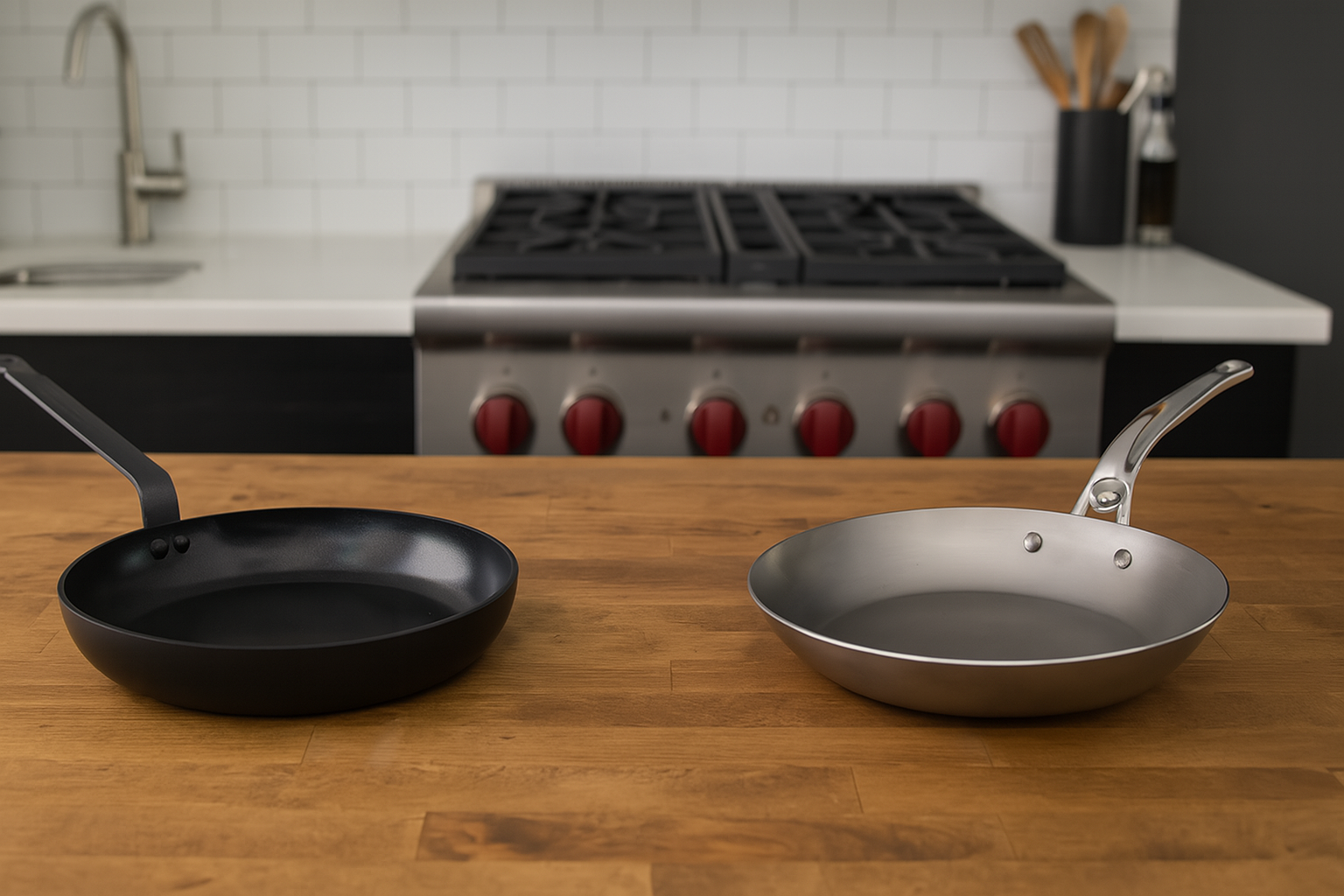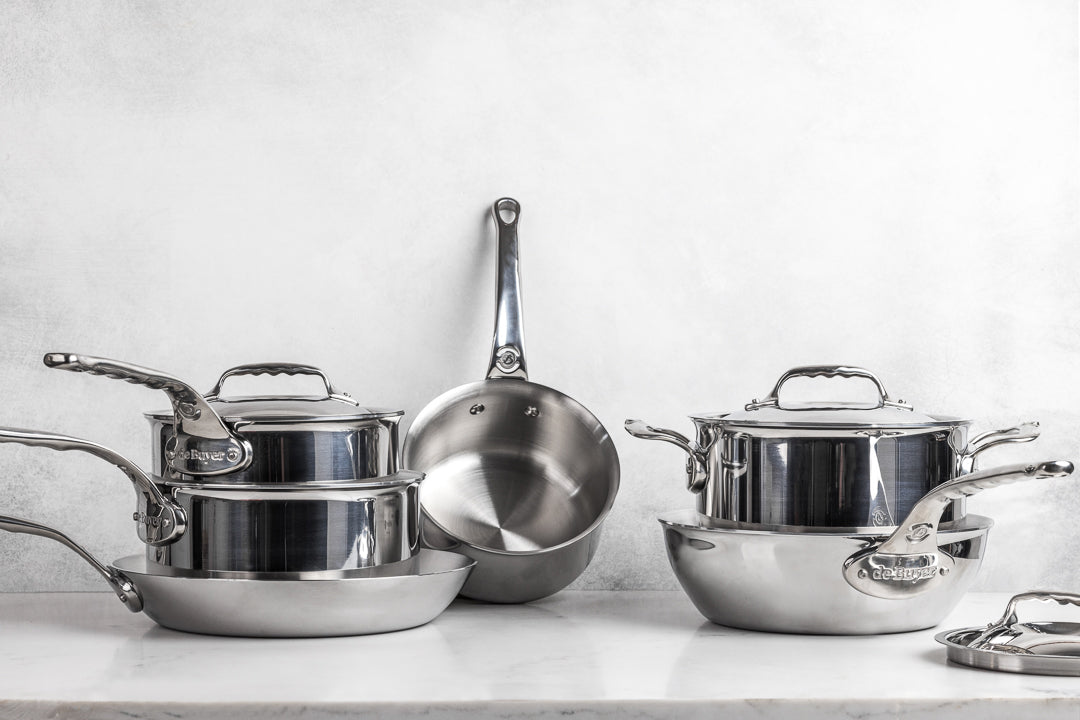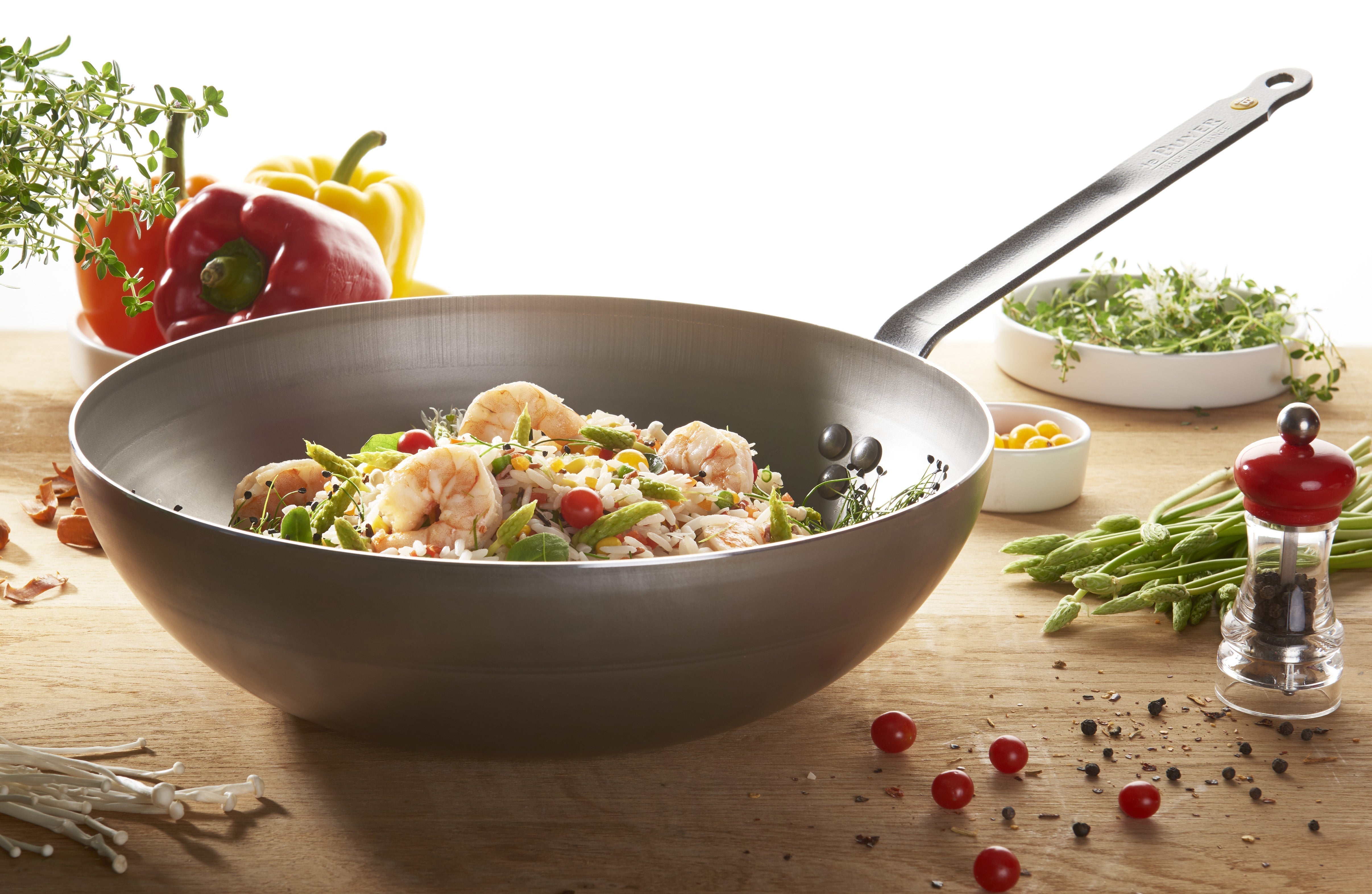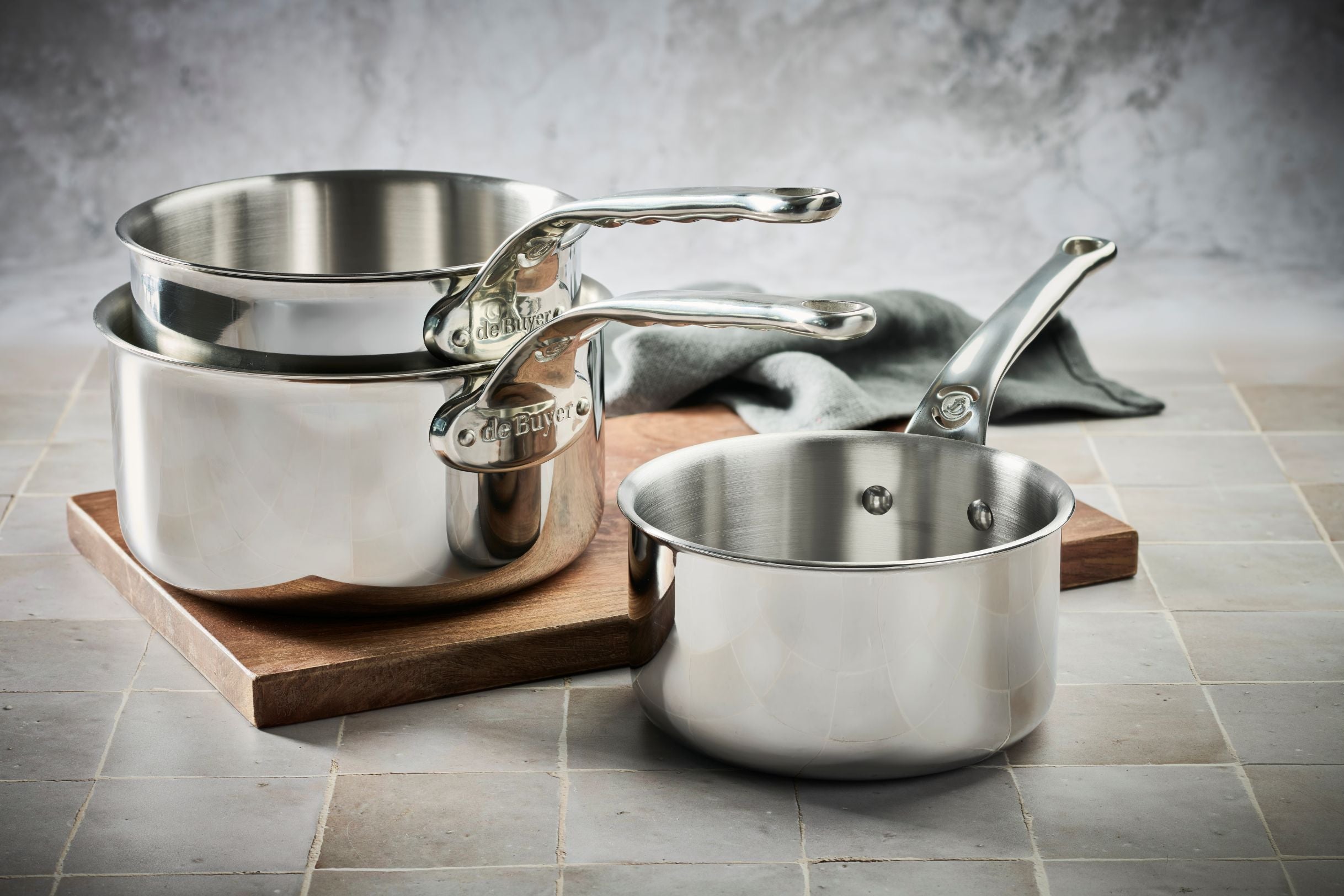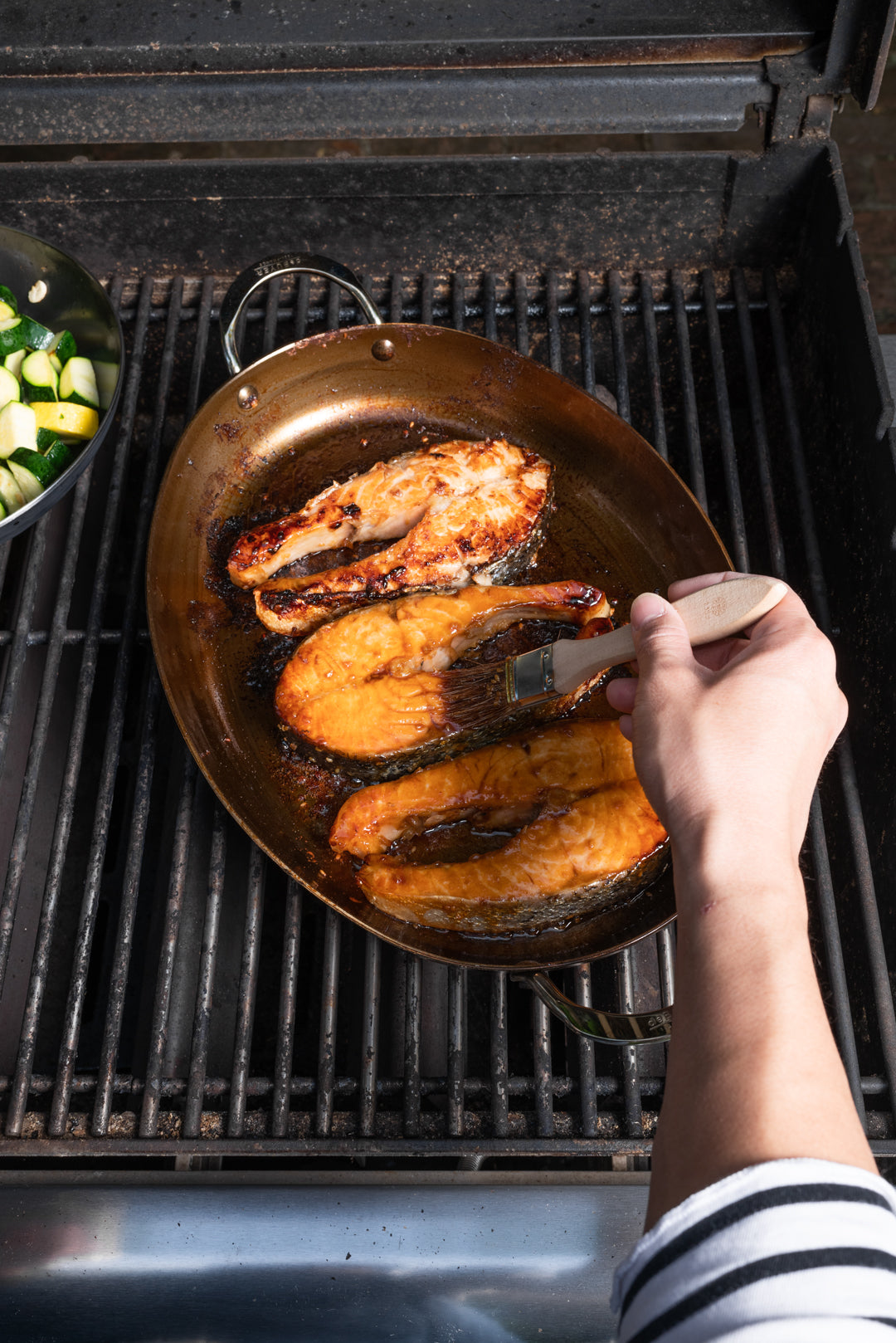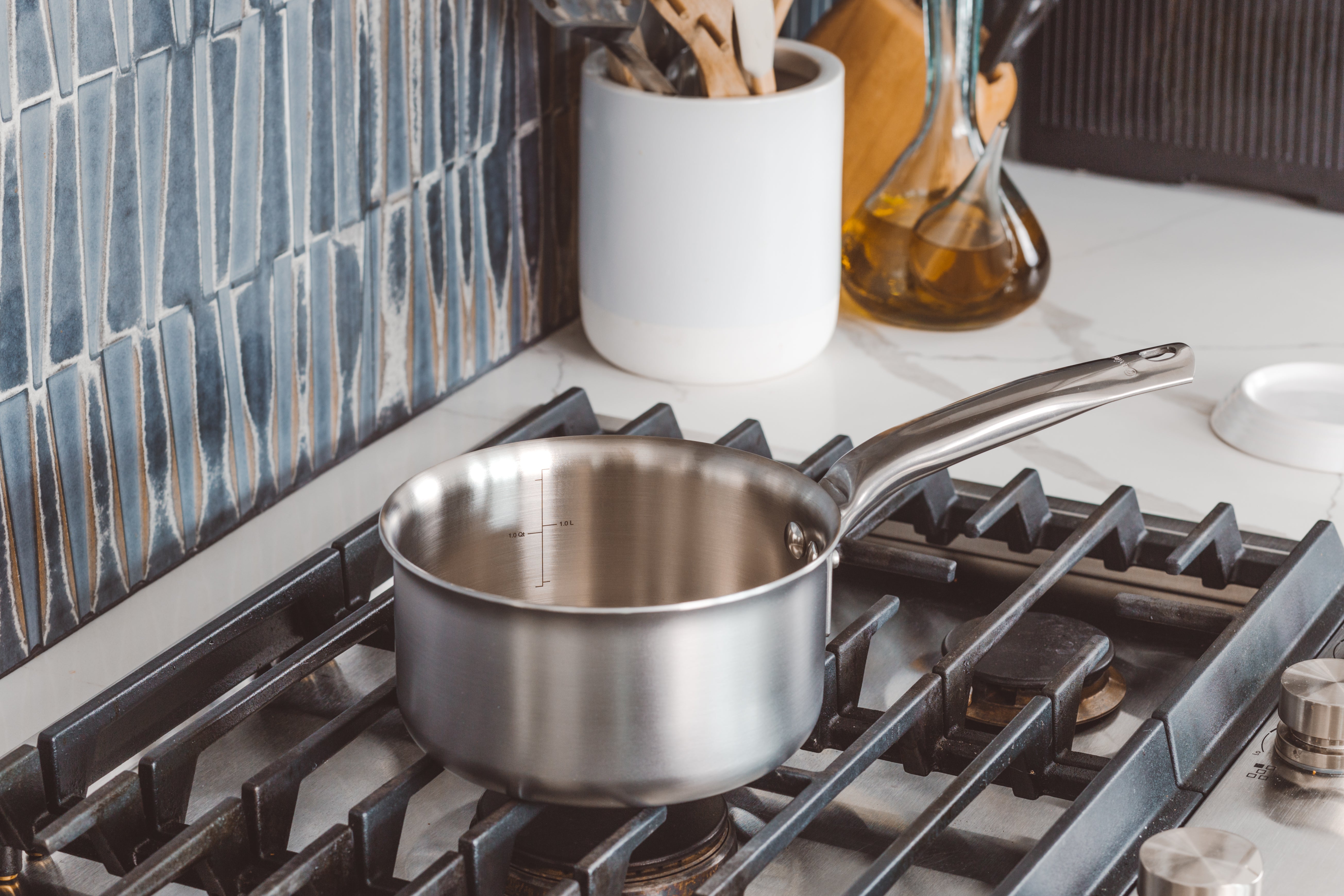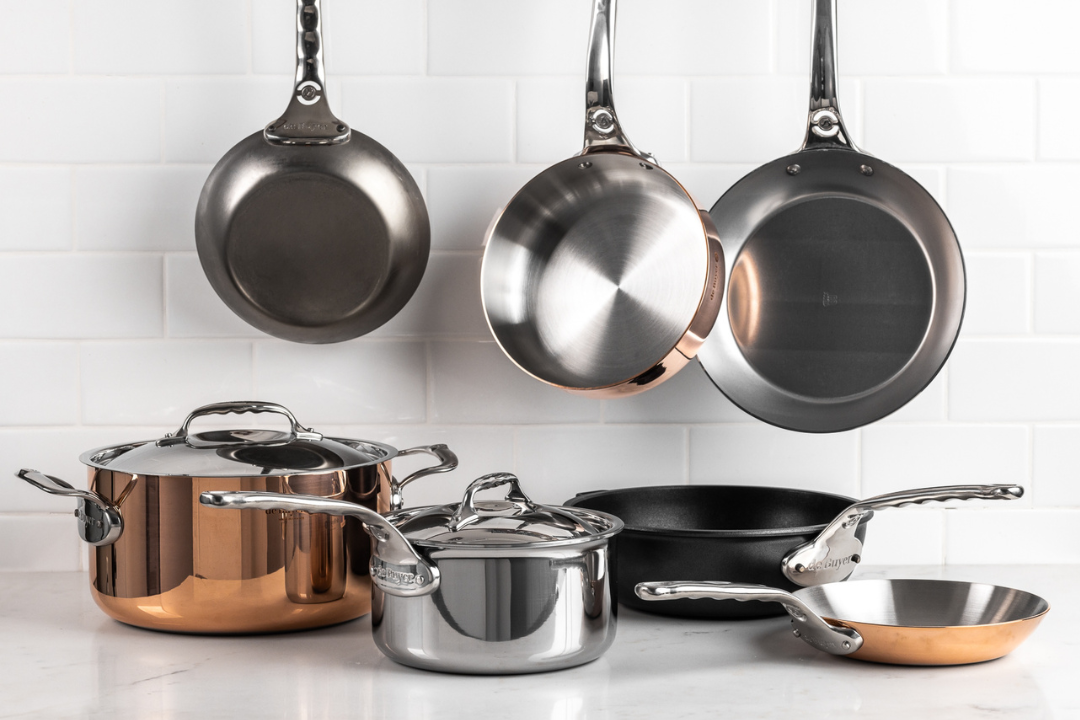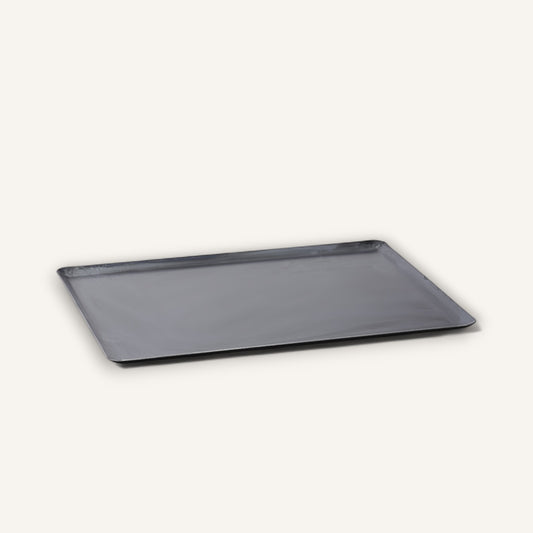Modern restaurateurs and home cooks are dedicated to making sustainable choices through food and cookware. A sustainable kitchen uses resources wisely, saving time, effort, and money. Even small changes can have a big impact on the environment and your lifestyle.
This article will guide you on how to create a sustainable, eco-friendly kitchen by making mindful choices in cookware, ingredients, energy usage, and waste management.
Why Sustainability Matters in the Kitchen
Inefficient kitchen practices have a significant environmental impact. Food waste makes up around 24% of solid landfill waste, and while some of this waste comes from ineffective use and spoiling, much of it comes directly from commercial and residential kitchens.
Restaurant kitchens, including cafes, fast food, and caterers, rack up over $7 million in energy costs yearly. Kitchens also contribute to the single-use plastics pollution crisis, and home kitchens are especially susceptible to choosing poor-quality cookware that breaks down quickly and is replaced regularly.
Kitchens don’t have to function like this. Whether you’re a professional or home cook, you can make sustainable living choices that reduce waste, conserve resources, and contribute to a healthier planet.
Choosing Eco-Friendly Cookware and Kitchen Tools
Selecting high-quality, long-lasting cookware and kitchen tools reduces the need for frequent replacements. These tools also help eliminate the use of plastic. Below are excellent cookware options made of sustainable materials.
-
Carbon Steel and Cast Iron Pans: Durable, long-lasting materials, like de Buyer’s Mineral B Pro Carbon Steel Fry Pan and Blue Carbon Steel Fry Pan, are more sustainable than nonstick or cheaply made pans.
-
Recyclable Stainless Steel: Up to 85% of stainless steel is recyclable. Stainless steel cookware can be used and repaired for years and then successfully be recycled.
-
Wooden Utensils: Replacing plastic tools with sustainably sourced wooden utensils reduces plastic waste.
-
Bamboo Products: Bamboo kitchen tools are a renewable alternative to plastic, as bamboo is highly sustainable and biodegradable.
With proper care, premium carbon steel, cast iron, and stainless steel last for years and years.
Reducing Food Waste in the Kitchen
Here are a few easy steps to reduce food waste and move toward a greener future.
Meal Planning
You can plan meals to prevent overbuying and food spoilage. It takes practice, and even successful restaurant kitchens still slip up, but with these tips, you can learn to plan waste-free meals:
-
Buy Seasonally: In-season and/or local foods contribute to less carbon emissions and are often fresher.
-
Create a Weekly Plan: Your plan must factor in food needs, habits, and preferences. A reliable weekly food plan will help you use up every ingredient and eliminate needless waste.
-
Consider Prep: Prepping some meals at the beginning of the week reveals unused ingredients and potential end-of-week meal options. Note that food prep isn’t the same as a day of slow roast or cooker meal.
-
Adapt: All any chef can do is anticipate and adapt. Your kids may eat up all the blueberries one week and not touch them the next. Restaurant diners may adore the ceviche one month and barely order it the next. Sometimes you have to make a jam out of blueberries or a fried fish appetizer out of ceviche ingredients.
Storing Food Properly
Use containers that keep food fresh longer, like glass containers or bags made with recyclable materials. Your freezer is your best friend here. Label every dish or ingredient with what it is, when you bought it, and when you froze it. Consider using deli containers, they may be plastic, but they are reusable, washable, and stackable.
Composting
Start a compost bin for food scraps and organic waste to reduce landfill contributions. There are many different composting methods, including buying worm-powered compost, working with a local composter, or just digging a hole in your backyard.
Whatever method you choose, the process is nearly identical. You will throw away layers of food waste and dry organic waste (leaves, newspapers, etc.), water it, add some soil, and allow materials to break down.
Energy-Efficient Cooking Practices
Save energy while cooking in a sustainable kitchen by following these practices.
-
Using the Right Cookware: Using efficient cookware, like carbon steel or cast iron, can reduce cooking time and energy use. These materials are also a more sustainable alternative to aluminum and nonstick cookware.
-
Induction Cooking: Energy-efficient appliances like induction cooktops heat up quickly and use less energy than traditional gas or electric stovetops.
-
Prep Cooking: Batch prep cooking saves time and energy, which reduces the need to cook multiple times per day.
-
Calculated Cooking: Knowing exactly what you’re doing in the kitchen and accomplishing tasks efficiently saves time and energy. This cooking method is the best time saver and is made possible by meal planning.
Other Sustainable Kitchen Products to Consider
Below are some eco-friendly alternatives to traditional, non-sustainable kitchen products. Incorporate these sustainable swaps into your kitchen.
-
Reusables: Switch to reusable items like cloth napkins, stainless steel straws, and silicone food storage bags. Keep paper towels for the really messy cleanups.
-
Eco-Friendly Cleaning Products: Use plant-based, non-toxic cleaning products that are biodegradable and safer for both the environment and health. Standard soup and water is a great option.
-
Water-Saving Faucets: It’s a small fix, but installing water-saving faucet heads can reduce water consumption in a big way. Most water-saving faucets work by aerating the water, which means they mix in air to create a more forceful stream that ultimately uses less water.
Sourcing Your Ingredients Locally
The value of buying in-season and local foods deserves an in-depth explanation since sourcing ingredients sustainably has a large effect on the environment.
Locally sourced produce reduces carbon footprints associated with transportation. The European Commission found that “global food miles generate nearly 20% of all CO2 emissions from food.” Getting fruit and vegetables from the local community garden or nearby farms eliminates the majority of this waste.
Aim to use organic or Fair Trade products that are grown using eco-friendly methods and ensure fair wages for farmers. Fair Trade products are grown with set social, economic, and environmental standards. You can identify Fair Trade products by their seal.
Shop local and seasonal foods that are grown with ethical practices to contribute to a sustainable future. You may also incorporate more plant-based meals into your meal plan, as plant-based foods have a lower environmental impact than meat.
Sustainable Practices for Waste Reduction
Reduce waste even further with these best practices.
-
Recycling: Recycle packaging like cardboard, glass, and certain plastics.
-
Reusable Shopping Bags: Use cloth or reusable shopping bags to cut down on single-use plastic bags. These waste reduction products make it easy to be eco-friendly in your daily life.
-
Eco-Friendly Cookware Storage: Store cookware properly to extend its lifespan, avoiding the need for frequent replacements. Proper storage could include stacking with anti-scratch pads, hanging from a rack, or slotted in between cabinet dividers.
Create a Greener Kitchen with Simple Changes
All it takes is making small, thoughtful changes to create a more sustainable, eco-friendly kitchen. Simply start incorporating some of the discussed changes into your routine, whether it’s investing in sustainable cookware, reducing food waste, or choosing eco-friendly products.
de Buyer offers a host of sustainable cookware options, including carbon steel cookware and 5-ply stainless steel cookware. These are long-lasting and efficient pieces designed to improve the quality of your cooking and increase sustainability in the kitchen.
